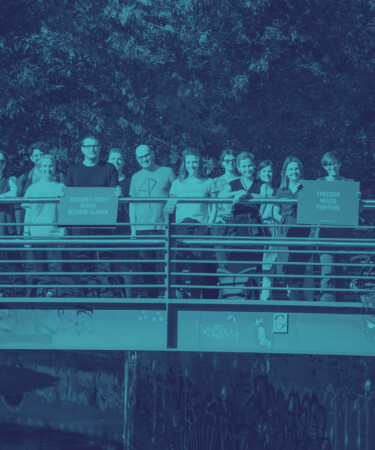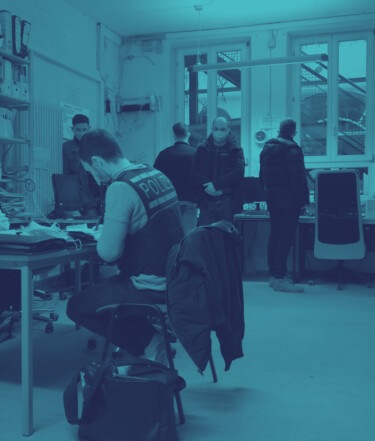
Danger to press freedom: Investigative journalist sentenced for quoting from court order
Provision § 353 d No. 3 of the German criminal code prohibits quoting from documents relating to ongoing criminal proceedings and thus violates the freedom of the press. Investigative journalist Carsten Janz was convicted on the basis of this provision - we are supporting him in his appeal proceedings.
In December 2023, Carsten Janz reported on the news portal t-online about an ongoing investigation by the Hamburg Public Prosecutor General's Office in connection with a mass shooting. In his article, he quoted two short passages from a ruling by the Hamburg Regional Court, which declared a house search to be unlawful. First the Hamburg District Court and then the Hamburg Regional Court sentenced him to a fine of 40 daily rates in accordance with Section 353d No. 3 StGB.
Quotations from documents relating to ongoing proceedings are prohibited
The criminal provision prohibits the public communication of “the indictment or other official documents of criminal proceedings [...] in whole or in substantial part, in their wording” if they are part of ongoing proceedings. In practice, this means that it is forbidden to quote verbatim from such documents - Carsten Janz's case shows that this even applies to very short quotations. Paraphrases are possible in principle. However, in order to deal with court arguments, the wording is often important. The standard makes quotes in the wording impossible and thus unjustifiably restricts the freedom of the press.
Provision does not provide for any exceptions
The provision is intended to protect the personal rights of parties to proceedings and also to prevent lay judges or witnesses from being influenced in a subsequent main hearing. The fact that it does not provide for any exceptions for journalistic reporting is problematic in terms of fundamental rights. Both the European Court of Human Rights and the Federal Court of Justice (BGH) emphasize in their case law that such considerations must always be weighed against the freedom of the press. The BGH has even specifically questioned whether Section 353d No. 3 StGB is constitutional.
GFF also represents Arne Semsrott
The GFF is also active in the criminal proceedings of FragDenStaat editor-in-chief Arne Semsrott, who was also found guilty of violating the standard by the Berlin Regional Court in October 2024. We have filed an appeal with him against this verdict and are jointly appealing to the BGH.






